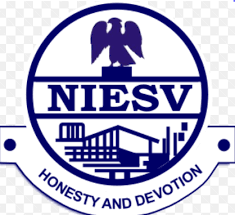The estate surveying and valuation profession in Nigeria is facing growing challenges, including rising inflation, a struggling real estate market, and the increasing encroachment of unlicensed practitioners. These concerns were highlighted by Akinhanmi & Associates, a firm of professional estate surveyors and valuers, in a recent engagement on the state of the industry.
The firm identified the proliferation of untrained and unlicensed middlemen in different aspects of the profession as one of the most pressing challenges. According to them, the activities of these so-called “agents” not only dilute professional standards but also expose unsuspecting clients to avoidable risks. While the Estate Surveyors and Valuers (Registration, etc.) Act, CAP E13, Laws of the Federation of Nigeria 2007 provides for the Estate Surveyors and Valuers Registration Board of Nigeria (ESVARBON) to regulate the profession, enforcement remains a key challenge.
The firm stressed that members of the Nigerian Institution of Estate Surveyors and Valuers (NIESV) stand apart because of their training, ethics, and accountability, all anchored on the profession’s motto, “Honesty and Devotion.” Unfortunately, the influx of unlicensed practitioners, commonly described as “quacks,” has continued to damage the reputation of the sector. These individuals often parade themselves as real estate experts, engaging in fraudulent transactions or poorly executed deals that tarnish the image of the entire profession.
Government initiatives such as the Lagos State Real Estate Regulatory Authority (LASRERA) were described as positive steps, but experts insist that genuine estate surveyors and valuers must lead in deepening compliance. Collaboration between LASRERA, ESVARBON, and NIESV is expected to help eliminate fraudulent practices and strengthen industry credibility.
On the economic side, inflation and rising interest rates have placed enormous pressure on the real estate market. Many households are unable to meet rental demands, while the dream of home ownership is moving further out of reach for ordinary Nigerians. Property values have been volatile, with fluctuations making valuation reports more difficult. However, practitioners note that the market has a way of balancing itself, and despite initial slowdowns, activity is resuming across residential, commercial, and mixed-use properties.
The depreciation of the naira has also reshaped investor behaviour. At first, buyers hesitated as prices rose faster than their purchasing power. Yet resilience among Nigerians has led to renewed confidence in the property sector. Today, transactions are taking place across different classes, from affordable housing to luxury developments, as real estate continues to be regarded as a reliable store of value.
Valuation experts warn that distressed or abandoned properties pose major risks. Hidden issues such as encumbrances, litigation, or defective titles often reduce security of ownership, while visible problems like structural defects or poor finishing directly affect habitability and value. Thorough due diligence by licensed professionals was recommended as the only safeguard against these risks.
In terms of investor interest, the hospitality sector is seeing increased demand, particularly for short-let and Airbnb-style apartments. Driven by tourism, the creative industry, and the return of diaspora Nigerians during festive periods, developers are focusing on one- and two-bedroom units to meet this need.
Nigeria still lags behind advanced markets in adopting digital valuation tools and proptech solutions, but awareness and gradual adoption are growing. High costs, unreliable data, and resistance to change were identified as obstacles. However, proptech firms in Lagos are already offering tenant background checks, employment verification, and financial credibility assessments to improve transparency and reduce fraud in rental transactions.
Experts also stressed that inadequate infrastructure remains a major drag on property valuation and marketability. Poor roads, weak drainage, and unstable electricity can significantly devalue properties and discourage buyers. They cited instances where abandoned access roads rendered once-promising estates unattractive to investors. Nonetheless, ongoing federal and state infrastructure projects, many through public-private partnerships, are seen as encouraging signs.
Improved land administration through digital integration was identified as a potential game-changer for the industry. Online searches, remote applications for approvals, and access to verified land data could drastically cut delays, reduce corruption, and boost investor confidence. Lagos State was praised for its gradual automation of property-related processes, with calls for similar reforms across the country.
On its part, Akinhanmi & Associates said it is navigating these challenges by ensuring strict compliance with fiscal regulations, delivering transparent services, and collaborating with fellow registered firms. According to the firm, professionalism and accountability remain the best ways to protect clients from losses and sustain trust in the property market.
